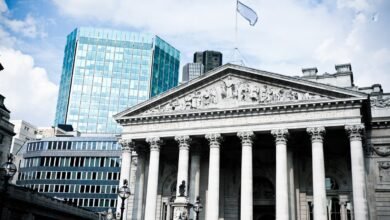Bangladesh PM Sheikh Hasina Advocates Common Currency for Muslim Nations, Eyes Trade Boost

During a significant meeting with a delegation of D-8 Trade Ministers, led by Turkish Deputy Minister of Trade Mustafa Tizcu, Bangladesh Prime Minister Sheikh Hasina proposed an ambitious plan for Muslim countries to adopt a common currency similar to the European Union’s euro. This groundbreaking suggestion was made at the prime minister’s official residence, Ganabhaban, aiming to strengthen trade ties and accelerate socioeconomic development among Muslim nations.
Envisioning a Unified Economic Front
Prime Minister Sheikh Hasina highlighted the potential benefits of a unified currency in facilitating smoother and more efficient trade and commerce among Muslim countries. Drawing inspiration from the European Union’s success with the euro, she believes that such a move could significantly enhance economic cooperation and integration among the D-8 member countries. The prime minister’s vision extends beyond trade; it includes fostering a closer socioeconomic partnership and improving the living standards of people across these nations. The delegation expressed agreement with the proposal, emphasizing the goal to expand bilateral and multilateral trades among the D-8 countries, with an ambitious target of reaching a trade volume of US$ 500 billion by 2030.
Strategic Steps Towards Economic Collaboration
The meeting also delved into strategic discussions on implementing a preferential trade agreement (PTA) among D-8 countries. Such an agreement would pave the way for reduced tariffs and more accessible markets among the member states, further propelling trade volumes and economic growth. This initiative is part of a broader strategy to enhance economic ties and collaboration, reflecting a shared commitment to prosperity and development among the participating countries.
Context and Implications of the Proposal
The proposal for a common currency among Muslim nations comes at a time when global economic dynamics are increasingly characterized by regional integration and bloc-based economic strategies. By suggesting a unified currency, Prime Minister Sheikh Hasina not only aims to boost trade and economic growth among the D-8 countries but also positions the bloc as a more cohesive and influential player on the global stage. This move, if realized, could have far-reaching implications for international trade, economic policy, and geopolitical relations, potentially reshaping the economic landscape of the Muslim world.
As the world watches this development, the proposal for a common currency among Muslim countries spearheaded by Prime Minister Sheikh Hasina marks a bold step towards redefining economic cooperation and integration. The journey towards such an ambitious goal will be fraught with challenges, including navigating diverse economic policies, political will, and implementation logistics. However, the potential benefits of a unified economic front, enhanced trade volumes, and socioeconomic development present a compelling case for further exploration and collaboration among the D-8 member states.





